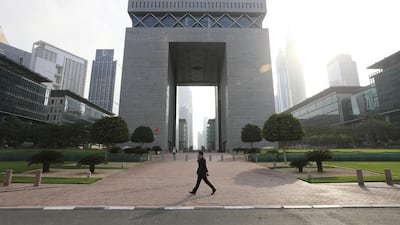So the Federal Tax Authority has finally published the draft Executive Regulation in relation to the VAT Decree-Law. It seems to confirm that the value added tax (VAT) will not be delayed beyond January 1 2018, although it appears it will not apply until 7am on New Year’s Day, which is sensible.
What are the headline conclusions? Lots of positives. Although there hasn’t been a formal consultation on how VAT should work in the UAE, those that drafted the regulation appear to have listened to businesses and media commentators that highlighted certain concerns.
The major concern I had related to the transitional rules, in light of the fact that very few existing commercial contracts refer to who bears the risk of VAT. The starting point in the Decree-Law stated that if an existing contract was silent on VAT, the price would be VAT inclusive. This might make sense in consumer contracts, but made less sense in relation to commercial contracts where the recipient was in a position to recover the VAT charged by the supplier.
The UAE Executive Regulation takes a more considered approach at modifying this position than (in my opinion) the simpler but ultimately unsatisfactory approach taken in the Saudi legislation.
Under the Executive Regulation, if a contract is silent on VAT, the consideration will be treated as exclusive of VAT, and the recipient will be required to pay VAT in addition if, broadly speaking, (i) the recipient of the supply is registered for VAT; and (ii) the recipient of the supply has the right to recover the VAT charged in full or in part. In my experience, businesses were extremely worried that the introduction of VAT would result in them giving a 4.72 per cent price cut to their customers; the Executive Regulation will give them considerable comfort.
However, it is still unclear (at least to me) what the position is when it comes to supplies to government entities – for example, determining whether an entity is in fact a government entity, whether a government entity is required to be registered and whether it has the right to recover VAT. There was less detail than one might have expected in relation to government entities in the Executive Regulation, which makes me think there may still be unresolved issues with regard to their treatment.
______
Read more on VAT:
New Year's Day VAT dilemma for UAE consumers and businesses
Who will bear the burden of VAT in the UAE?
'Don’t stress about VAT in the UAE - it’s not complicated at all'
Tax in the UAE: Everything you need to know about VAT and a little bit more
______
The Executive Regulation is clear that prices must be expressed including VAT unless something is being supplied for export or where the customer is registered for VAT. Although this is aimed – laudably - at preventing businesses from misleading consumers by adding 5 per cent to the price at the till, it still gives rise to problems where businesses are supplying to a combination of consumers, non-registered businesses and registered businesses, and where they make both domestic and international supplies.
Those that hoped for special treatment for free zones will also be disappointed. There was reference to “Designated Zones” being treated as outside the UAE in the Decree-Law, but the Executive Regulation makes it clear these must be “a specific fenced geographic area [which] has security measures and customs controls in place to monitor entry and exit of individuals and movements of goods to and from the area”. It simply wasn’t permissible under the GCC Framework Agreement, or the design of VAT generally, to treat the Dubai International Financial Centre differently from anywhere else in the UAE.
In addition, further rules were contained to determine the VAT treatment of certain supplies, and businesses must now move rapidly to determine where they are. This will be onerous for banks, who will need to work through Article (42) of the Executive Regulation to determine which of their supplies are exempt and which are standard rated. For example, supplies cannot be exempt if they are “conducted in return for an explicit fee, discount, commission, and rebate or similar”. Furthermore, in relation to Islamic finance products, the drafting is currently unclear on whether each separate part of a product will need to be certified as Sharia compliant, or whether only a product generally has to have been certified.
Finally, many challenges remain for certain sectors. Healthcare services, which are generally zero rated, are defined as a supply “that is generally accepted in the medical professions as being necessary for the treatment of the recipient of the supply including preventive treatment”. That’s not just a question for a tax lawyer. That’s a question for a doctor.
“Is there a doctor in the building?” It’s an emergency ...
Jeremy Cape is a tax lawyer at Squire Patton Boggs, which has offices in London, Dubai and Abu Dhabi. Follow him on Twitter @jeremydcape

